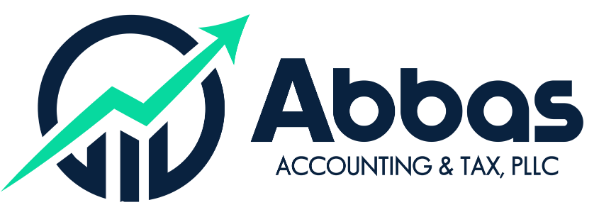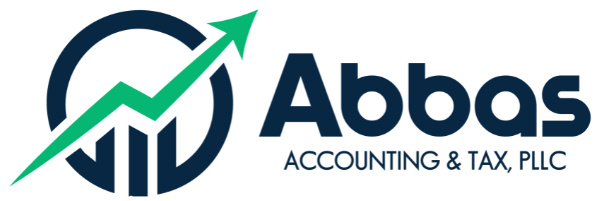Startup Financial Checklist for Entrepreneurs in Texas
Launching a startup in Texas? A solid financial checklist ensures you’re set up for success. In this 2025 guide, we’ll walk you through every critical step, from entity formation to bookkeeping, so you avoid common pitfalls and stay audit-ready.
Startup Financial Setup Checklist for New Businesses
- 1. Form the Right Business Entity
Choose an appropriate structure, LLC, S-Corp, or C-Corp, for liability protection and tax benefits. Explore how entity choice impacts your deductions in our Small Business Tax Deductions guide.
- 2. Obtain EIN from IRS
An Employer Identification Number is required for hiring, banking, and filing taxes. It’s also free and can be obtained in minutes through the IRS EIN portal.
- 3. Open Business Bank Accounts
Separate personal and business funds to simplify bookkeeping. Look for accounts with no monthly fees and features suited for small business owners.
- 4. Set Up Bookkeeping Software
Use popular tools like QuickBooks Online or Xero to track income, expenses, and invoicing. Keep automated logs and backup digital receipts to simplify later tax filing.
- 5. Register for Sales & State Taxes
If you sell taxable goods or services in Texas, apply for a Sales Tax Permit with the Texas Comptroller and file quarterly or monthly returns.
- 6. Establish Payroll & Contractor Processes
Hiring employees? Set up payroll services and register for withholding taxes. If you work with 1099 contractors, track payments and file required forms to stay compliant.
- 7. Plan Startup Expenses & Budget
List and categorize costs: equipment, licenses, rent, insurance, and marketing.
Forecast cash flow needs for at least 6 months to ensure runway. - 8. Purchase Business Insurance
Protect your startup with liability, property, cyber, and E&O coverage. These premiums are deductible, learn more in our tax deduction guide.
- 9. Make Estimated Tax Plans & Retirement Contributions
Estimate and pay quarterly taxes. Consider a SEP IRA or Solo 401(k) both are excellent for reducing taxable income and saving for retirement.
- 10. Back Up Records & Ensure Audit Readiness
Store scanned copies of receipts, contracts, payroll records, and financial reports. Keep backups in both cloud storage and offline systems for security.
Pro Tips for Startup Finances
- 📌 Separate owner draw from payroll to simplify tax categorization.
- 📊 Track burn rate and cash runway monthly for smart budgeting.
- 🧠 Use AI tools to automate receipt capture, reconciliation, and reporting.
- 📚 Consult your CPA annually, especially before filing year-end taxes.
FAQs
Q: When should I open a business bank account?
A: As soon as you receive your EIN and choose your entity, it helps separate personal finances and protects your liability.
Q: How much should I budget for software and tools?
A: Basic bookkeeping and invoicing tools can start at $20–$50/month. Allocate more if you plan to scale quickly.
Q: Can I file taxes without bookkeeping software?
A: Technically yes, but software ensures accuracy, streamlines deductions, and reduces audit risk.
Conclusion
Executing this financial checklist sets your Texas startup up for growth, legal compliance, and tax efficiency. Taking these steps now avoids surprises later and helps you build a strong foundation for success.
Schedule a free financial strategy session with Abbas Accounting & Tax, PLLC
Related Posts

Understanding Small Business Tax Deductions
Explore how deductions like home office, Section 179, and QBI can lower your 2025 tax bill.
Read More
Quarterly Bookkeeping Tips for Texas Businesses
Stay consistent by following our quarterly bookkeeping checklist for better financial control.
Read MoreEXCELLENTTrustindex verifies that the original source of the review is Google. Haider is an exceptional accountant. His CPA background and exceptional knowledge of the US tax code has been a great asset to my businesses. His work is very clean and thorough, while always making an effort to communicate with me each step of the way. I would highly recommend him for anyone looking to grow their business!Trustindex verifies that the original source of the review is Google. My husband and I can not tell you how grateful we are for Abbas Accounting & Tax. Haider is so helpful and very very knowledgeable. So many of our neighbors recommended him and we are glad we reached out. We now feel confident and actually have an understanding on how we SHOULD fill out our W4 and our taxes. We finally have a trusted tax & accounting expert that we will continue to utilize every year! Thank you!Trustindex verifies that the original source of the review is Google. I had an excellent experience with Abbas Accounting & Tax in Richmond. Their team is professional, knowledgeable, and genuinely cares about helping their clients. Haider Abbas made the process simple and stress-free, providing clear explanations every step of the way. Their expertise saved me both time and money on my taxes. I highly recommend Abbas Accounting & Tax to anyone seeking reliable, trustworthy, and friendly accounting services.Trustindex verifies that the original source of the review is Google. Haider has been incredibly helpful in guiding me through my tax filing process and helping me understand the advantages available to me. He took the time to explain everything clearly, making sure I was informed and confident in my decisions. Beyond just taxes, Haider also provided valuable insights into forming my LLC, helping me structure it in a way that benefits me both financially and legally. His expertise, professionalism, and willingness to go the extra mile truly set him apart.Trustindex verifies that the original source of the review is Google. I've known Haider Abbas for many years, and I can confidently say he is one of the most knowledgeable and trustworthy CPAs out there. He genuinely cares about his clients and takes the time to explain everything in a way that makes sense. Whether it’s tax preparation, accounting, or financial advice, he goes above and beyond to ensure accuracy and maximize savings. His professionalism, attention to detail, and commitment to client success truly set him apart. If you're looking for a reliable CPA who will always have your best interests in mind, especially when tax season is upon us, I highly recommend Abbas Accounting & Tax!Trustindex verifies that the original source of the review is Google. He’s done our taxes for over ten years and has saved us so much money every year. Haider has great knowledge and expertise with the ability to communicate effectively and adapt to our needs. It has been a pleasure working with him for over a decade! Highly recommend.Trustindex verifies that the original source of the review is Google. Best place to get your taxes done. Haider has great knowledge & expertise to handle your business or personal taxes.Trustindex verifies that the original source of the review is Google. Great service. Haider Abbas explains taxes in a simple manner and helps to make sure you are getting your full refund, by knowing the tax laws so well. Would highly recommend to everyone!Verified by TrustindexTrustindex verified badge is the Universal Symbol of Trust. Only the greatest companies can get the verified badge who has a review score above 4.5, based on customer reviews over the past 12 months. Read more



[…] Startup Financial Checklist for Entrepreneurs in Texas […]